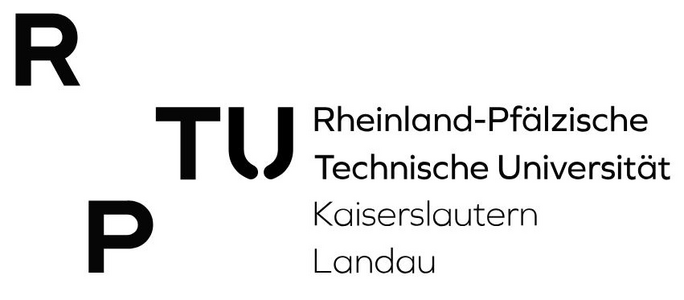Working in Leipzig
Leipzig - Welcome to ‘The Better Berlin’

Leipzig has become an exciting centre for research and scholars, with Leipzig University leading the way. © lapping / pixabay.com
The city of Leipzig in the German state of Saxony was long touted as an up-and-coming hotspot. Now, it has arrived. Offering its 625,000 residents a vibrant cultural life, the city has also been a respected centre of learning since the 18th century. Several research institutions and Germany’s second-oldest university call the city home, making Leipzig a perfect base for academic research and the arts.
Updated: 2023-09-12
Leipzig as a research location
Once touted by Goethe as a ‘Little Paris’, Leipzig has a long and rich tradition of higher learning and is home to Germany’s second-oldest university after Heidelberg. More recently, the city has also earned renown as a wonderful city to live in with plenty of cultural and free time activities to go with its excellence as a hub of research.
All of the country’s major research bodies have a significant presence in Leipzig. The Max Planck Institutes for Human Cognitive and Brain Sciences, for Mathematics in the Sciences, and for Evolutionary Anthropology are all located here. The Fraunhofer Institute for Cell Therapy and Immunology is here, joining the Fraunhofer Centre for Central and Eastern Europe. Other institutions include the Helmholtz Centre for Environmental Research, the Leibniz Institute for Regional Geography and the German Biomass Research Centre.
The city is also home to BIO CITY LEIPZIG, a continually expanding hotspot for biotech startups and cutting-edge biotech and medical research in cooperation with Leipzig University. Professors and research groups from six different university faculties are present at the Centre for Biotechnology and Biomedicine (BBZ), making it a key hub of knowledge transfer and cooperation between science and business.
History
Leipzig was first documented as ‘urbs Libzi’ (city of lime trees) in 1015 in the chronicles of Bishop Thietmar of Merseburg and endowed with city and market privileges in 1165 by Margrave Otto the Rich. Merchants and craftsmen are first documented to have settled in Leipzig from 1218, and by the mid-18th century, Leipzig was highly respected throughout Europe as a place of learning and commerce.
In 1813, the Leipzig region was the arena for the Battle of the Nations in which an allied coalition of Austria, Prussia, Russia and Sweden defeated Napoleon’s armies as part of the ‘Wars of Liberation’. Leipzig’s Monument to the Battle of the Nations (‘Völkerschlachtdenkmal’) is Europe’s tallest monument. By the 19th century, Leipzig was a centre of the publishing industry.
As was the case for many cities in the former East Germany, the country’s reunification in 1990 and the subsequent currency union resulted in heavy financial losses for Leipzig, which impacted trade and industry in particular. The city struggled with high unemployment for many years as both the job market and real estate market floundered. Happily, however, those difficult times are now in the past. Unemployment has plunged by half since 2011, the real estate market has more than stabilised and the city has become a popular destination for innovation and startups. In numerous city rankings and economic trend lists that have come out in recent years, Leipzig has frequently placed near the top for quality of life and future economic prospects. The city is also a significant business centre, home to major operations for companies including BMW, Porsche and DHL.
Living in Leipzig
The city of Leipzig is growing rapidly. While much of that growth has come in recent years from a large influx of refugees, most recently Ukrainians fleeing the war back home, it is also driven by a younger demographic attracted to the city by its economic vibrancy and relatively low cost of living. Even as the city proved unable to compete for significant industrial investment following reunification, that has changed more recently, and its more positive recent developments combined with numerous parks and green areas have translated to life quality rankings that are among the best in Germany.
Despite the improvements, life in Leipzig has remained affordable. While real estate values have increased significantly in the last decade, prices for buying and renting remain lower than in other large German cities.
A strong musical tradition is also part of Leipzig’s rich heritage. The world-renowned St. Thomas Choir of Leipzig was founded 800 years ago, and Johann Sebastian Bach was its most famous director. The Gewandhaus concert hall, Leipzig Gewandhaus Orchestra and Leipzig Opera House, are also great cultural assets. The famous composer Felix Mendelssohn lived in Leipzig for many years and founded the Conservatory of Music, now the Felix Mendelssohn Bartholdy University of Music and Theatre.
What Sets Leipzig Apart
Leipzig has a vibrant cultural and arts scene and is home to the second largest book fair in Germany, after the one in Frankfurt. For centuries, it has been home to regional trade fairs, and that is no different today, with Leipzig hosting dozens of them each year.
Goethe was fascinated by the city, where he studied law for three years. He called Leipzig ‘Little Paris’ because he was excited by its stylishness and the relatively well-educated populace. Leipzig even forms the backdrop to a scene in Goethe’s ‘Faust’, in which Mephistopheles bewitches four students. The scene takes place in Auerbachs Keller, Leipzig’s best-known cellar wine bar and restaurant. There is a statue of Faust and Mephistopheles outside the establishment, and it is said that touching Mephistopheles’ shoe brings luck – and that anyone who doesn’t believe this will have seven years’ bad luck.
These days, though, the ‘Little Paris’ moniker isn’t used quite as much as it once was. Now, it is simply known as ‘The Better Berlin.’





